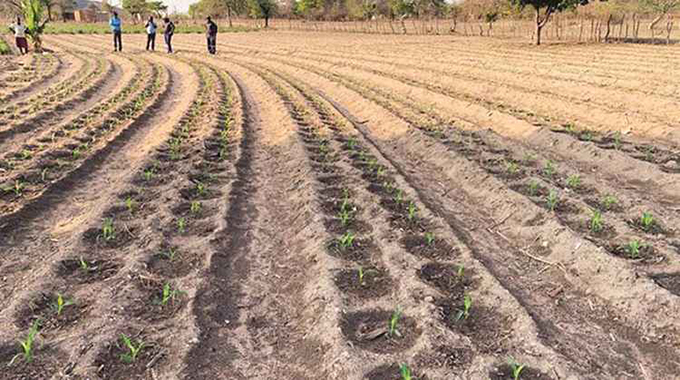
The Sunday Mail

Harmony Agere
The local seed industry has realised significant growth over the past few years as a result of Government input support schemes, especially the Pfumvudza/Intwasa programme, a new report has shown.
According to an independent study by The African Seed Access Index (TASAI) on the state of the seed industry in Zimbabwe, the Government was the biggest buyer of seed.
The study, which focused on four food crops — maize, sugar beans, soya bean and sorghum — indicated that the Government’s input schemes absorbed 46 percent of the maize seed sold in 2021.
It was also the biggest buyer of soya bean (36 percent) and sorghum (31 percent) in the same period.
“The Government was the major buyer of maize and sorghum seed, while agro-dealers constituted the main buyers of bean seed. In the case of soyabean, Government and farmers’ direct purchases represented the two largest buyers,” reads the preliminary report.
“All four focus crops were part of the Presidential Input Support Scheme for the 2020/2021 financial year.”
The study also claims the Government spent US$279 million on subsidising seed, fertiliser and pesticides for 3,3 million vulnerable households.
“The number of companies selling seed to the Government subsidy programme increased from six companies in 2016 to 10 in 2021 for maize; from two companies in 2016 to six in 2021 for sorghum,” adds the report.
“Four companies sold bean seed and five companies sold soya bean seed in 2021. These crops were not included in the programme in 2016. The seed sold to Government programmes as a percentage of all seed sold increased between 2016 and 2021, with Government purchases of seed ranging from 15 percent for bean seed to 46 percent for maize seed in 2021.”
Commenting on findings of the study, TASAI researcher Dr Claid Mujaju said the Government’s input schemes were a big market that has kept the seed industry afloat.
“On this aspect, we have to applaud the Government, because our smallholder farmers who could not afford quality seed are now catered for, while seed companies are assured of a significant market of their products,” he said.
Meanwhile, the number of active seed companies continues to grow, thereby increasing competitiveness.
“In 2021, 23 active seed companies focused on the four focus crops. This represented an increase from 16 active seed companies in 2016,” reads the report.
Chief director, Department of Research and Specialist Services, in the Ministry of Lands, Agriculture, Fisheries, Water and Rural Development, Dr Dumisani Kutywayo, said findings of the study will inform policymakers, particularly as the Government develops its seed policy set to be unveiled next year.



